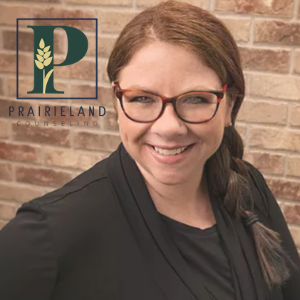
“I just feel so angry.”
“The anger comes out of nowhere.”
“I am just so restless and agitated.”
Often when we think about the postpartum period, we think of sweet baby snuggles, cute little clothes, and making forever memories. We rarely think about the mental health implications of postpartum depression, postpartum anxiety, and other mental health disorders that occur during pregnancy or the first year after our baby is born.
One thing that is discussed even less is Postpartum Rage or Anger.
While there is no specific number on how many parents experience postpartum anger, we do know that 15% of women experience postpartum depression and 10% of women experience postpartum anxiety. As for postpartum anger, there is still much debate if it is a separate experience or part of another Perinatal Mood or Anxiety disorder (PMAD).
What does Postpartum Anger Look Like?
What it can feel like is indescribable anger that comes out of nowhere, feeling incredibly frustrated with anything and everything, hating their partner in the moment, and feeling unsupported.
It can also look like snapping, yelling, and aggression at people or items. Often this is short lived, and is followed by feelings of shame and guilt over their anger.
Tips for Dealing with Postpartum Anger
Talk to Someone
Visit with a medical provider and get screened for a potential mood or anxiety disorder. Talk to your partner. Often when we are feeling unsupported, overwhelmed and overstimulated, we are more likely to experience frustration and anger. Talk to your support system. Are there things that others can step in and help with so you can have the ability to take care of yourself?
Adequate Sleep
It is still recommended to get around 7 hours of sleep in the postpartum period, even when our babies may not agree. Can you alternate who gets up during the night or in the morning, or who puts the baby to bed? If you can try for 2-3 hour chunks of sleep, and 7 total, it is better for your body and mind.
Nutrition
Are you eating and properly nourishing yourself? It often seems impossible to sit down and eat 3 meals a day when you have a baby. Can you eat smaller meals and snacks throughout the day to make sure that you are getting proper nutrition?
Hydrate
If you’ve got a Stanley (or any other favorite cup), make sure you are using it! Staying hydrated is really important, especially if you are feeding another human, plus managing all the tasks around us.
Alone Time
As a therapist, I am hearing more and more about parents feeling overstimulated. Between social media and one (or more) little ones, we often get very little time where we just sit in the quiet.
When was the last time you experienced silence? Spend 5 minutes just sitting, breathing, and orienting yourself to your space through the senses. Or, take a quiet shower or bath.
Log Off Social Media
Often we are turning to social media when we feel tapped out, but you’re actually still engaging your brain in an attempt to feel “better.” But, so often social media actually makes us feel worse. Try to think of an alternate task to calm your mind – read a book, go for a walk, or listen to your favorite song.
So if you find yourself feeling angry, irritated, yelling or shouting, understand you are not alone. You are not a bad parent. Postpartum Anger and Rage has become a more common experience among new parents.
Reach out and talk to someone. Find a provider to help figure out if this is s a symptom of something bigger, like depression or anxiety. Find support in your partner or other family/friends. Fuel yourself, and take time to reduce stimulation and just be in the quiet.
You are not a bad parent, and you will feel better with help and support.
About the Author:
 Natalie Reiter, MEd, LPC/LPCC, CCS, PMH-C, started counseling in 2009 and owns Prairieland Counseling Services. She specializes in reproductive mental health which includes perinatal, postpartum, infertility, infant loss, paternal mental health, and the impact on couples. Her work as a child birth educator and mother of two children sparked her passion to work with reproductive mental health. She has specialized training and am certified in perinatal and postpartum mental health from Postpartum Support International.
Natalie Reiter, MEd, LPC/LPCC, CCS, PMH-C, started counseling in 2009 and owns Prairieland Counseling Services. She specializes in reproductive mental health which includes perinatal, postpartum, infertility, infant loss, paternal mental health, and the impact on couples. Her work as a child birth educator and mother of two children sparked her passion to work with reproductive mental health. She has specialized training and am certified in perinatal and postpartum mental health from Postpartum Support International.














